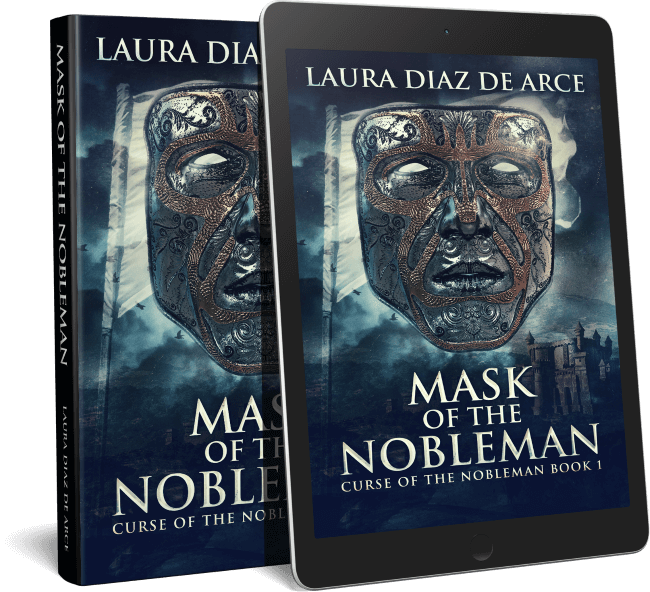Scars of the Heart
Book summary
In "Scars of the Heart," Bob Van Laerhoven explores human cruelty through ten gripping stories set across various countries and eras. From contemporary Syria to 1960s Belgian Congo, the narratives reveal the dark side of love, showcasing how our passions can lead to violence, loneliness, and greed.
Excerpt from Scars of the Heart
The Abomination
Roughly fifteen minutes to go before Al-Thar.
After the agony and humiliation of these last weeks, an apparent certainty rules my head: revenge is the only honourable way out of this situation.
Barricaded in this room, staring into the mirror I positioned in front of me, I address a mental message to my khaal, Bashar al-Assad, Syria’s ruler: ‘Stand tall, revered uncle of every Alawite. Hold out your arms, extend your shabh until your shadow covers every Syrian citizen, commanding them to obey you or die.’
To the Westerners in this hospital, especially the woman Quagebuur, I say, ‘Fuck you, and may you rot in hell.’
Allah ou Akbar.
***
Ten minutes left before the blood wrath, I figure.
Amman shimmers in the sun, its pastel skyscrapers and hungry noises filling the window. In this light and at this moment, it could be the portal to Akhirah, the afterlife.
A pious part of me that came to life after the accident in Al-Houla whispers that I will be a faithful Muslim martyr.
I shall have my reward of servants and wives under the eternal dome adorned with pearls, aquamarine, and ruby as wide as the distance from Al-Jabiyyah to Sana’a.
An older part of me, the Wildman I have always been at heart, murmurs: ‘I hope the houris in Paradise will be up to scratch. If they’re virgins, as the Prophet said, then they’ll have a fucking lot to learn. To suck a man’s dick right, for instance. Of course, I’ll have eternity to teach them, and, like all Muslim men in heaven, I’ll be the equivalent of Adam, sixty cubits tall. Let’s hope my dong will be in proportion.’
I look at the glass of whiskey in my left hand. I have always liked my booze strong and sinful.
I drain the glass. There’s still enough for two more shots in the bottle.
That should do the trick.
Alcohol is a two-fanged demon; it sharpens my instincts and jangles my memories.
The last thing I want to think about is that Belgian nurse, Quagebuur.
But I do.
***
‘You’ve lost the will to live because your macho frame of mind can’t cope with what has happened to you,’ said the blunt Belgian woman, Veronique Quagebuur, head nurse in this Doctors Without Borders hospital. Doctors had removed the shrapnel in my legs two days before, and I could finally hobble around.
‘You’re also clinically depressed because your system needs steroids to make you feel like a man, and you’re not allowed them here. Your gonads are too small to restart the production of indigenous testosterone after years of steroid abuse. You’re obsessed with the notion that your body is paperclip thin and weak. We have a medical term for that obsession—reverse anorexia.’
I was sitting in front of her in the hospital’s bustling and noisy consultation area. Your gonads are too small?
If we had been alone, I would have snapped her neck with one arm for daring to speak to me like that. She had tied up her hair and wasn’t wearing a niqab or a scarf. A whore like that, with brown hair and black eyes, questioning my manhood?
She leaned on her desk: ‘For the record: were you one of the Shabiha in Syria? One of the Ghost Killers?’
We stared at each other, close together, worlds apart—the glassy sheen of disbelief in each other’s eyes.
***
I could have told the Belgian woman that Shabih doesn’t mean Ghost. It’s Shabah, plural ashbah. We’re named after the Mercedes 600 we used for our raids—nickname shabah—and after the unique way—tashbih—we visit wrath upon others, those who are not Assadists.
We like to kill with the knife for our leader Bashar al-Assad, so everyone will know that it was the Shabiha who did it, and everyone will know who is master in our motherland.
‘We are Doctors without Borders,’ Quagebuur continued when she realized I wasn’t going to answer her question. ‘In this hospital, aggressors and victims are treated the same. Sunni, Shiite, Alawite, Christian, supporter of Assad’s regime or rebel are notions that belong out there,’ she pointed to the window, to the streets, ‘not in here.’
My mouth remained closed. I had heard that pictures we had taken of each other with our smartphones had reached the Western press. Before I was brought here, I shaved my beard; an unmanly thing to do but shrewd in these circumstances.
I had hoped it would be enough, but I couldn’t hide my weightlifter’s body.
I continued trying to stare her down, as I had done many times with my blood brother Massab.
Her eyes were those of a dog: attentive and shiny. She didn’t avoid my gaze, ‘If you prefer to remain silent, that’s fine with me, but you must know that your desire not to live anymore, which you expressed so clearly yesterday afternoon when our staff came to dress the wounds on your legs, is a symptom of severe depression. Your body, the sight of which filled others with fear, is damaged beyond repair, and you can’t stand it.’
I didn’t react at all.
She sighed, her mouth a curve of disdain: ‘Think about it, look into the mirror, and be honest with yourself.’
She picked up a pen, scribbled a few notes, and stood up. Instead of leaving the room, she came and stood at my right shoulder. She bowed and whispered in my ear, ‘If you don’t like what you see in the mirror, what will you do?’
I looked over my shoulder and saw her eyes honing in on the stump that had once been my right arm; six weeks ago, it had been sixty centimeters of muscle.
***
Eight minutes?
I look in the mirror at what’s left of me, just as the infidel Quagebuur asked me to.
She’s a dumb cow. She spoke as if looking in a mirror were punishment or humiliation.
What does she know?
Before I lost my arm and chunks of my legs, I liked to look in mirrors and see the monstrous strength in my pectorals, my shoulders, my torso, my legs, and my arms.
Mirrors defined me.
I also liked ramming people’s faces into mirrors, spattering blood, glass, and tissue.
***
I remember looking at myself in the mirror at our gym, flexing my biceps, the right one tattooed with the face of Sheikh Bashar al-Assad, and my friend Massab commenting: ‘Rani, look at those biceps. You must be stronger than The Hulk by now. You are becoming The Abomination.’
The night before, in his apartment, Massab had put on a DVD of his favourite American movie, The Incredible Hulk. We drank the liquor Massab’s brother-in-law had smuggled in from Jordan as we watched. Massab’s apartment was a safe place to booze, given his reputation in the neighbourhood for being a weapons freak. Entering his apartment without an invitation was a death sentence; everyone knew it, even our mudir, Shaheed Batala, the boss of our Alawite clan. We called him Night Runner behind his back because of his appetite for young virgins. But even if Massab had been a peaceful man, Shaheed would not have interfered with the booze. He was convinced that drinking was but a minor sin in the eyes of Allah, the Almighty, and certainly forgivable for soldiers like us who had to fight the enemies of our country every day.
I had injected a cocktail of steroids a few hours earlier, and the alcohol made me listless and numb, but I sat upright when The Abomination appeared on the screen. When the movie was over, I asked Massab to play it again.
And again.
The Abomination: a monster of muscle. A creature of destruction.
Inspiring fear and awe.
Murderous and relentless. A towering presence, hard as a rock, stronger even than The Hulk, who’s scared shitless when they fight. But The Incredible Hulk is an American movie; the measly Hulk wins in the end because Western infidels prefer emotional trash and inner turmoil to sheer strength and razor-sharp determination. The Hulk only wins the battle against The Abomination because he’s cunning and sly, which marks a coward. The Abomination is the stronger of the two; he would have won in a fair fight. He lost because he didn’t do what it takes—fight with everything you can find.
We fought for victory over our enemies with everything we could find: guns, blades, clubs, and our bare hands.
In our region of Al-Nasiriyah, the people whispered behind our backs that we were meatheads, gangs of bandits with seven-year-old brains.
They may have been right about some of us.
But not about me.
I knew why I trained like a madman. We had to be colossal and let them see our bulging muscles to instil instant terror in the people on the streets. We Alawites are the superior race of all Muslims. Shaheed Batala formulated it like this: ‘One Alawite is worth seven Shiites and seven Sunnites.’
So it’s not only our duty but also our right to defend the power of our khaal Bashar al-Assad with whatever it takes.
It’s as simple as that.
Although it isn’t easy, being powerful and superior is also a burden.
You always have to be on your guard. You always have to be the best.
That evening, I took the DVD of The Incredible Hulk home.
On my way, I pictured myself as The Abomination, and a sudden blast of carnal lust and longing for bloodshed surged through me, making the street reverberate, and my teeth chatter.
Tomorrow, I thought, we will cleanse the town of Al-Houla.
***
‘It would be cool if I had The Abomination’s spiky spine,’ I joked when we were on the Tripoli Road heading for Al-Houla, remembering the first time I had seen The Incredible Hulk. I recalled how I yelled with delight when the super monster made its appearance. Knowing what we were about to do in Al-Houla, where insurgent families were targeted for this raid, made me feel as if The Abomination lurked within me, waiting to morph me into its shape.
Massab was sitting next to the driver of our SUV. He smiled and raised his smartphone to take a picture of me. It had become one of his favourite pastimes in recent months since I had gained roughly two kilos of muscle every three weeks or so.
‘When we’re done in Al-Houla, you will feel the first spikes growing,’ he said quietly. Our eyes met in the rearview mirror.
‘You may not be a superhero like The Abomination, but you look like a massive bear,’ I said.
He was silent for a few minutes.
‘A bear isn’t powerful enough to tackle you,’ he answered, flexing his right arm and looking at it. ‘But before long, I will be so big that even you will have to concede I am the strongest.’

















Praesent id libero id metus varius consectetur ac eget diam. Nulla felis nunc, consequat laoreet lacus id.